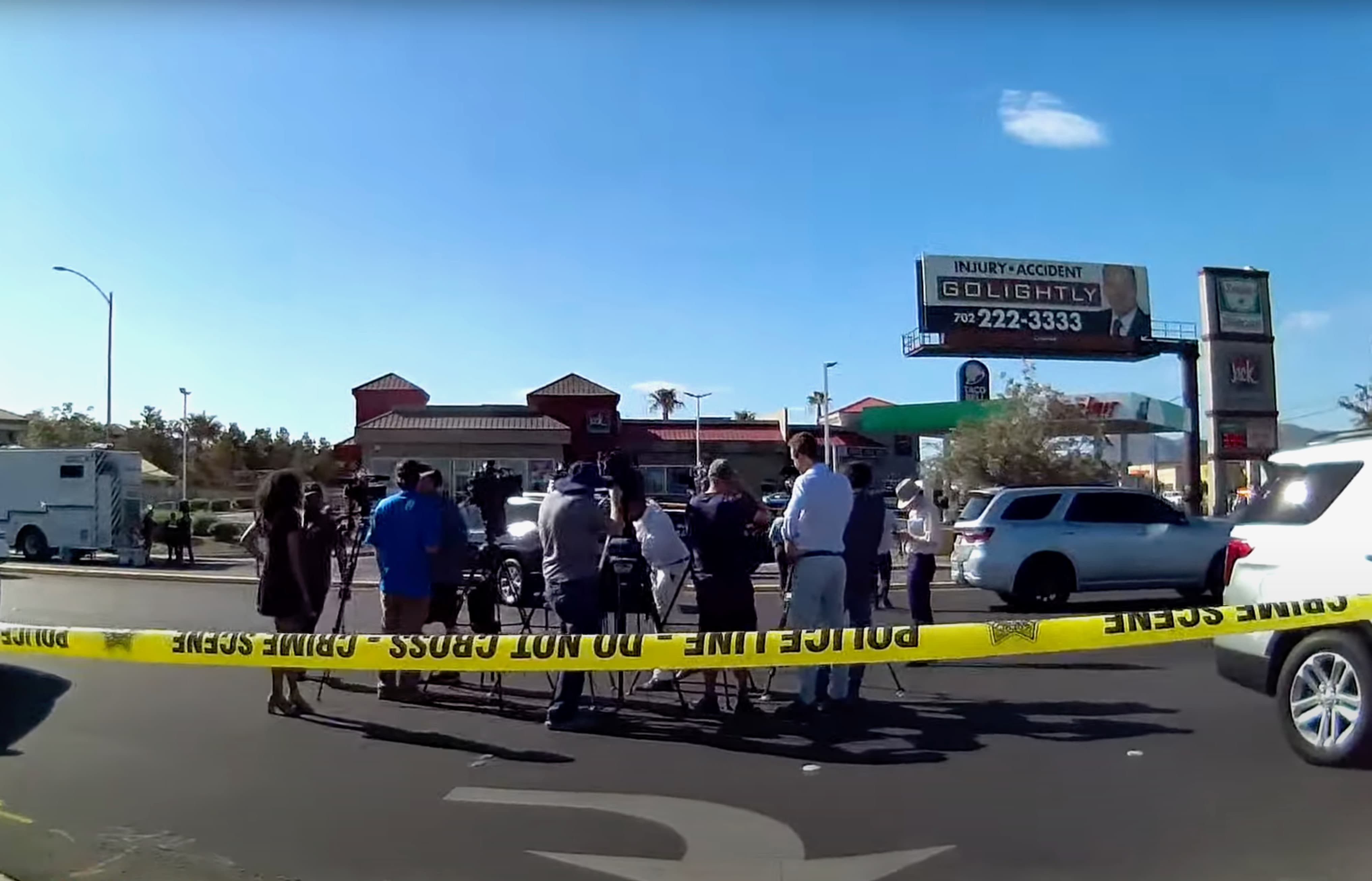With help from RCFP, ‘stringer’ organization gains access to police press briefings

The Las Vegas Metropolitan Police Department has stopped excluding a “stringer” organization from crime scene briefings after the Reporters Committee for Freedom of the Press criticized the department’s restrictions, arguing that they “raise serious First Amendment concerns.”
Over the summer, independent journalists reported that the police department had begun blocking them from its media email list and from participating in press briefings with legacy media. Doug Roberts of the stringer service Las Vegas Live, which sells video footage on an as-needed basis to local and national news outlets, recorded one incident in June in which he was prohibited from attending a briefing at a crime scene.
In the recording, an LVMPD public information officer can be seen asking reporters gathered on a sidewalk which media outlet they’re affiliated with. When Roberts tells the officer he is with Las Vegas Live, she informs him that he cannot join the briefing. After Roberts pushes back, saying he is on public property, the officer responds: “Then we’re all going to move inside the tape.” The officer then lifts the police tape to allow select reporters into the crime scene area for the briefing.
The next day, Roberts wrote a letter to the LVMPD, asking it to allow Las Vegas Live journalists access to the same information available to other media outlets. The department denied his request. That’s when he contacted the Reporters Committee’s free Legal Hotline, where he connected with Julia Dacy, an RCFP media litigation fellow.
After Roberts described the situation and shared the video footage, the Reporters Committee decided to send the police department a letter, urging it to end its practice of excluding certain journalists from its briefings.
“The protections of the First Amendment apply equally to traditional and non-traditional journalists and news organizations, including freelance reporters and stringers,” the Reporters Committee wrote in the letter sent in late July.
A month later, the Las Vegas Review-Journal published an article about the LVMPD’s access restrictions for independent journalists, highlighting the Reporters Committee’s letter and quoting RCFP Senior Staff Attorney Jen Nelson, who called the police department’s actions “highly problematic.”
Following the letter and the Review-Journal article, Roberts said the police department did “a complete 180.” He said the department started allowing Las Vegas Live journalists to attend briefings and added them to its media email list.
It’s unclear if other independent journalists will also be allowed to join LVMPD press conferences. The police department did not respond to the Reporters Committee’s requests for comment for this blog post.
Freelance journalists and stringers have played an increasingly pivotal role in local news coverage at a time when the U.S. has lost nearly three-quarters of its newspaper jobs since 2005. On average, two newspapers are shuttered each week across the country, leaving local news coverage gaps that freelancers often fill.
“There are some things that the other media just don’t report on,” Roberts said. “Maybe it affects a small community and they don’t have viewers in that community, or they’ve got too much to do that day. But we might take that story.”
Unlike some newsrooms, freelance journalists often can’t shoulder legal costs, a reality that makes the Reporters Committee’s free Legal Hotline a crucial resource for journalists like Roberts.
“I really appreciate the work that the hotline did,” Roberts said. “Even though we’re a small company, probably an unknown company, we still mattered.”
The Reporters Committee regularly files friend-of-the-court briefs and its attorneys represent journalists and news organizations pro bono in court cases that involve First Amendment freedoms, the newsgathering rights of journalists and access to public information. Stay up-to-date on our work by signing up for our monthly newsletter and following us on X (Twitter) or Instagram.